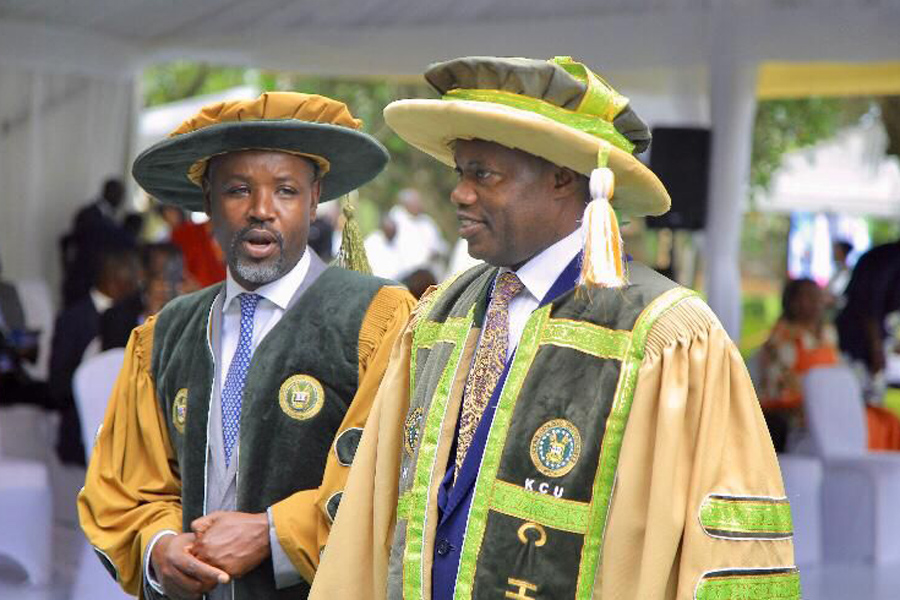Lira: KCB Uganda donates PPE, Shs 8.7 million to Ayile Primary School
KCB Bank Uganda recently handed over Personal Protective Gear (PPE) and Shs 8.7 million for the procurement of class desks to Ayile Primary School in Lira district as part of its plan to improve learning conditions for children in rural areas.
KCB's Daniel Ayena said that owing to the Ministry of Health guidelines on observing Standard Operating Procedures (SOPs) that include social distancing and wearing of face masks at all times, the bank made this donation to support and improve the education and wellbeing of teachers and learners.
"We are handing over a total of 500 masks for teachers and students, and a sum Shs 8.7 million for the procurement of class desks to facilitate Ayile Primary School in maintaining the SOPs required in the fight against COVID-19 as guided by the Ministry of Health as well as Ministry of Education and Sports," Ayena said.
He said while education provides many intellectual and financial benefits to society, schools also serve as a place where children develop mentally, physically, and socially, hence the need to ensure that they are accorded an environment that fosters this development.”
A November, 2020 report by the Initiative for Social and Economic Rights (ISER), on the impact of COVID-19 on the continuity of education especially for children from impoverished backgrounds indicated that all school administrators interviewed doubted that their schools would be able to meet the SOP-stipulated ‘social distancing’ once all classes resumed learning, which they attributed to inadequate infrastructure.
Consequently, the donation by KCB Bank Uganda comes in handy in fostering a conducive learning environment for both teachers and learners.
Owiny Musa, the head teacher at Ayile Primary School noted that innovative solutions are needed to support the education sector and ensure the continuity of education for learners especially those in rural areas since COVID-19 is still here.
Owiny said: "There is a noticeable gap in the completion of school between children in rural and those in urban areas, as those in urban areas have more access to technology and the internet, our children here aren’t as equipped. We only rely on what we have available, which is for children to physically attend school if they are to acquire learning."













